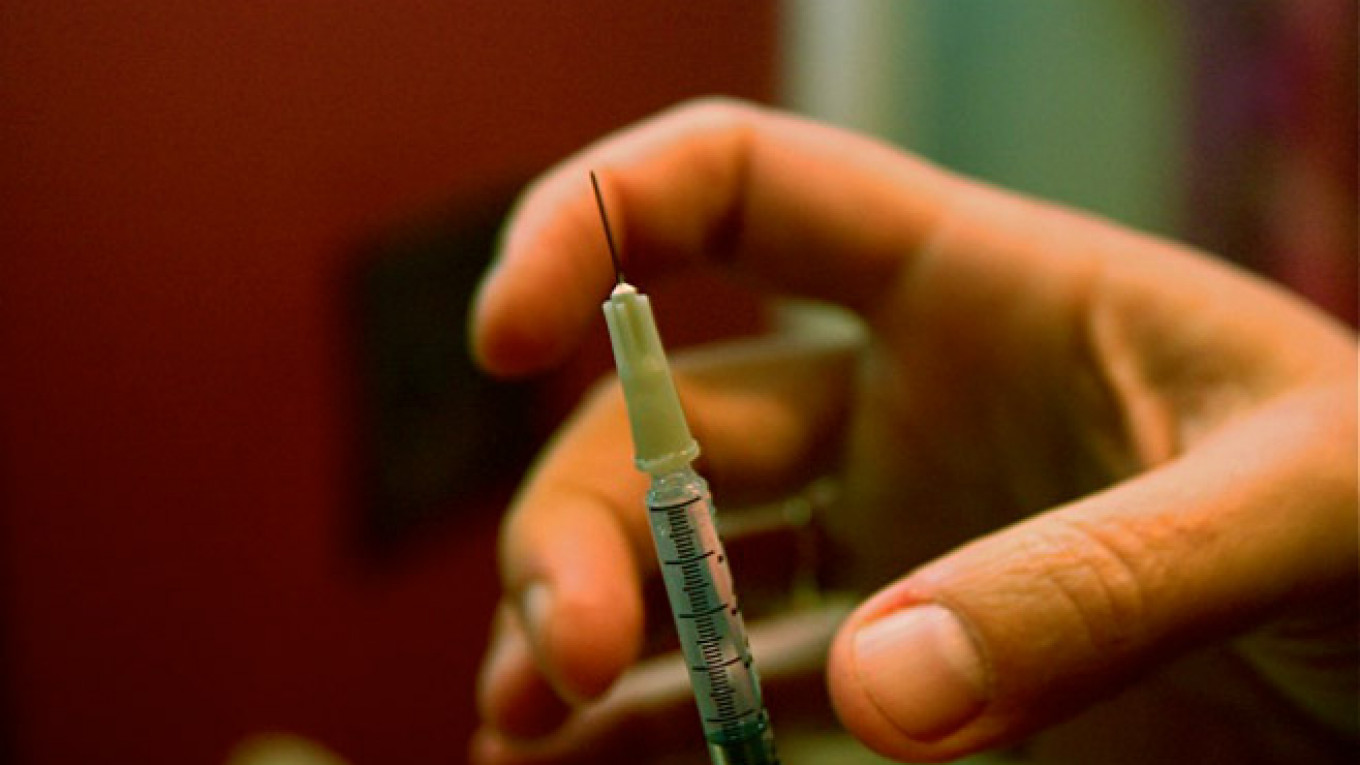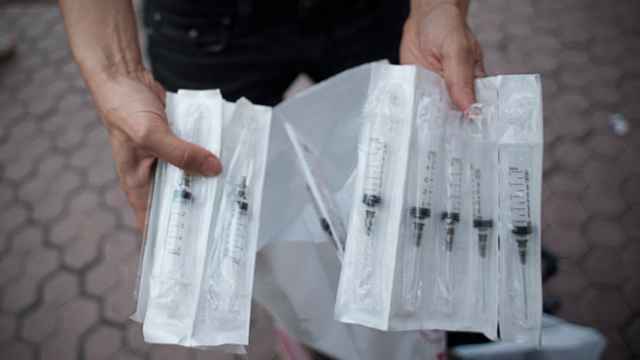A Ukrainian woman has filed a complaint with the European Court of Human Rights over Russia's refusal to allow her back into the country because she is HIV-positive.
The woman, whose husband and 1-year-old son live in the southern Russian city of Sochi, was denied entry in the spring, with border guards citing a 2012 decision by Russia's health watchdog to keep her out of the country after it was discovered while she was pregnant that she had HIV, Gazeta.ru reported Thursday.
"We learned today that Russia has been notified of this woman's complaint by the European Court of Human Rights. The court asks the Russian government whether it perhaps has a systematic problem that should have been resolved several years ago after the European court's ruling in the case of Kiyutin vs. Russia," Ramil Akhmetgaliyev, the woman's lawyer, was cited as saying by Gazeta.ru.
In the case of Kiyutin vs. Russia, the court ruled that the plaintiff, an HIV-positive man married to a Russian national, should not be denied residency on the basis of his HIV status.
The Ukrainian woman in the latest case had been living in Sochi with her husband and children since 2009 before being denied entry when returning from a trip home. The woman, who is currently living in the war-torn Ukrainian city of Donetsk with her 9-year-old daughter, reportedly also filed a complaint with Russia's Constitutional Court in the summer.
The news of the woman's complaint came as the head of Russia's Federal AIDS Center warned of an alarming increase in the number of new HIV infections this year.
In comments to the TASS news agency, Vadim Pokrovsky estimated that there would be about 100,000 new cases of the disease this year, in addition to the 850,000 cases already officially registered.
"Currently 850,000 cases of HIV are registered [in the country]," Pokrovsky was cited by TASS as saying. "But since the disease is quite insular, we estimate that there are 1.3 million now living with HIV" in Russia.
Pokrovsky also said that about 100,000 HIV-positive people in the country were foreigners.
Under Russian law, foreigners applying for long-term visas are required to take an HIV test, and the presence of an infectious disease gives authorities grounds to deny them a visa or deport them if they're already in the country.
Contact the author at a.quinn@imedia.ru
A Message from The Moscow Times:
Dear readers,
We are facing unprecedented challenges. Russia's Prosecutor General's Office has designated The Moscow Times as an "undesirable" organization, criminalizing our work and putting our staff at risk of prosecution. This follows our earlier unjust labeling as a "foreign agent."
These actions are direct attempts to silence independent journalism in Russia. The authorities claim our work "discredits the decisions of the Russian leadership." We see things differently: we strive to provide accurate, unbiased reporting on Russia.
We, the journalists of The Moscow Times, refuse to be silenced. But to continue our work, we need your help.
Your support, no matter how small, makes a world of difference. If you can, please support us monthly starting from just $2. It's quick to set up, and every contribution makes a significant impact.
By supporting The Moscow Times, you're defending open, independent journalism in the face of repression. Thank you for standing with us.
Remind me later.






